After the family left the Lake George RV Park, we took a couple days to mosey eastward. The first stop en route was Dolly Copp campground in New Hampshire’s White Mountains, which was significant because it was exactly the same area we spent our honeymoon 51 years previous!
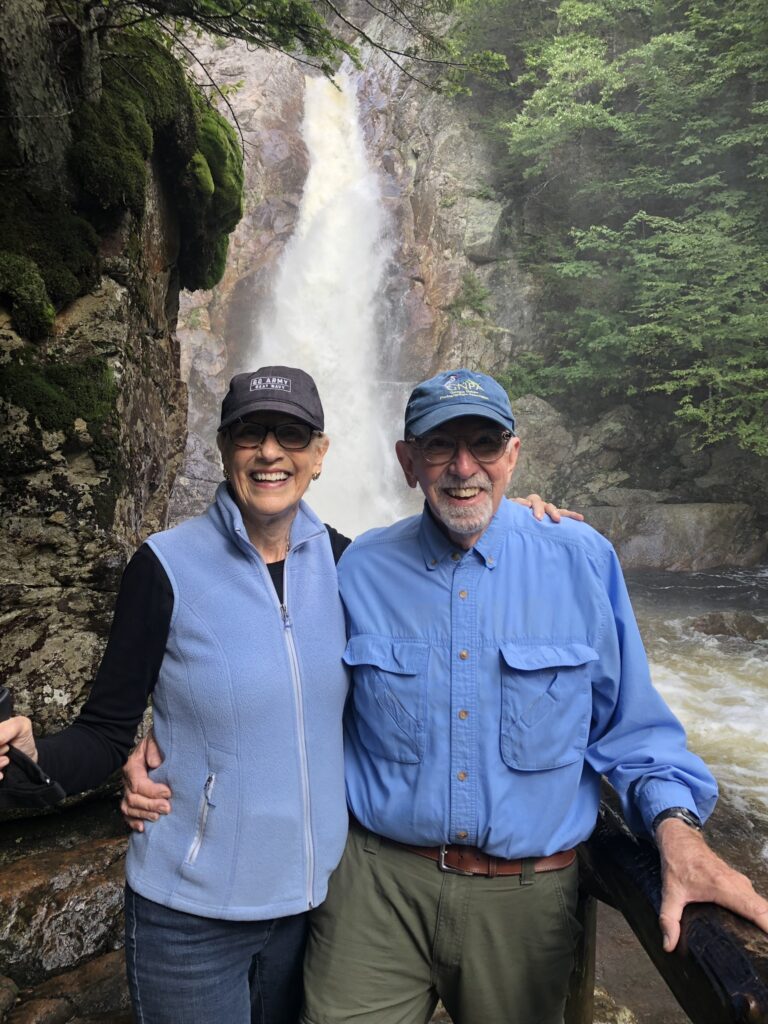
Of course, back then we were tent camping …
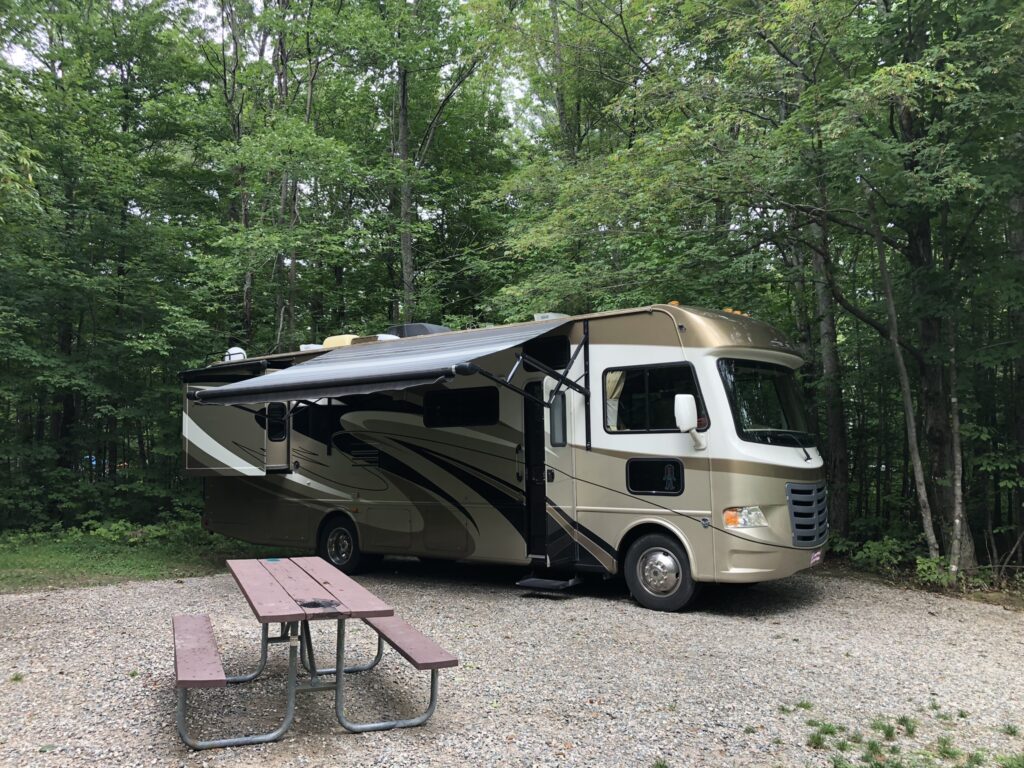
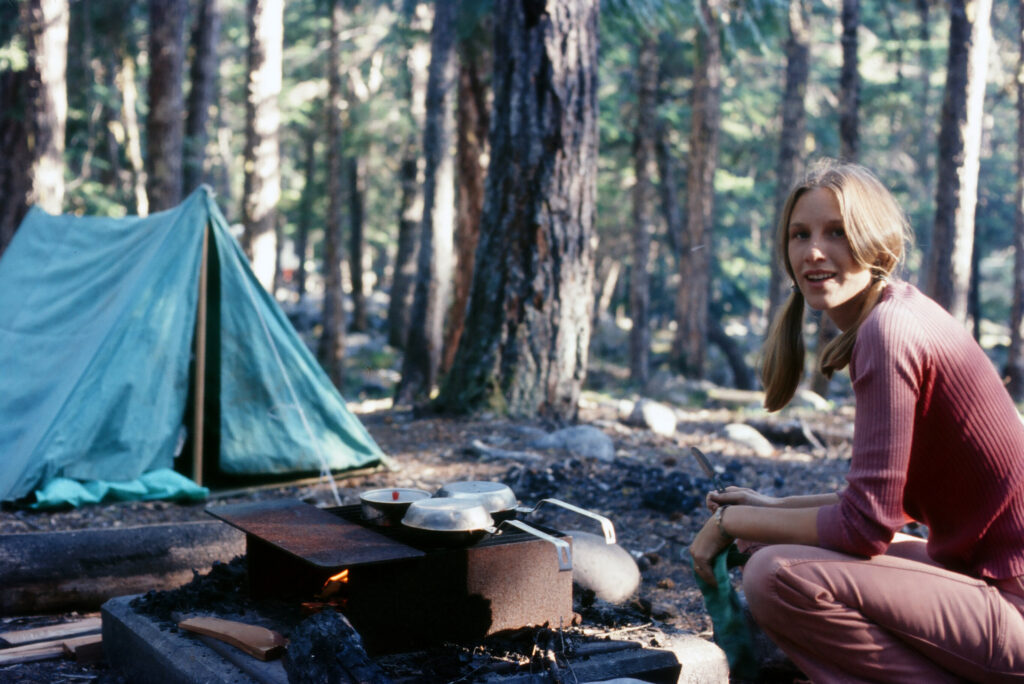
And where we were in New Hampshire in 1972, we were actually backpacking through these mountains! (Let’s say that now our standard for “roughing it” is considerably higher.) But the area is still as beautiful, and Mt. Washington still has the worst weather on earth.
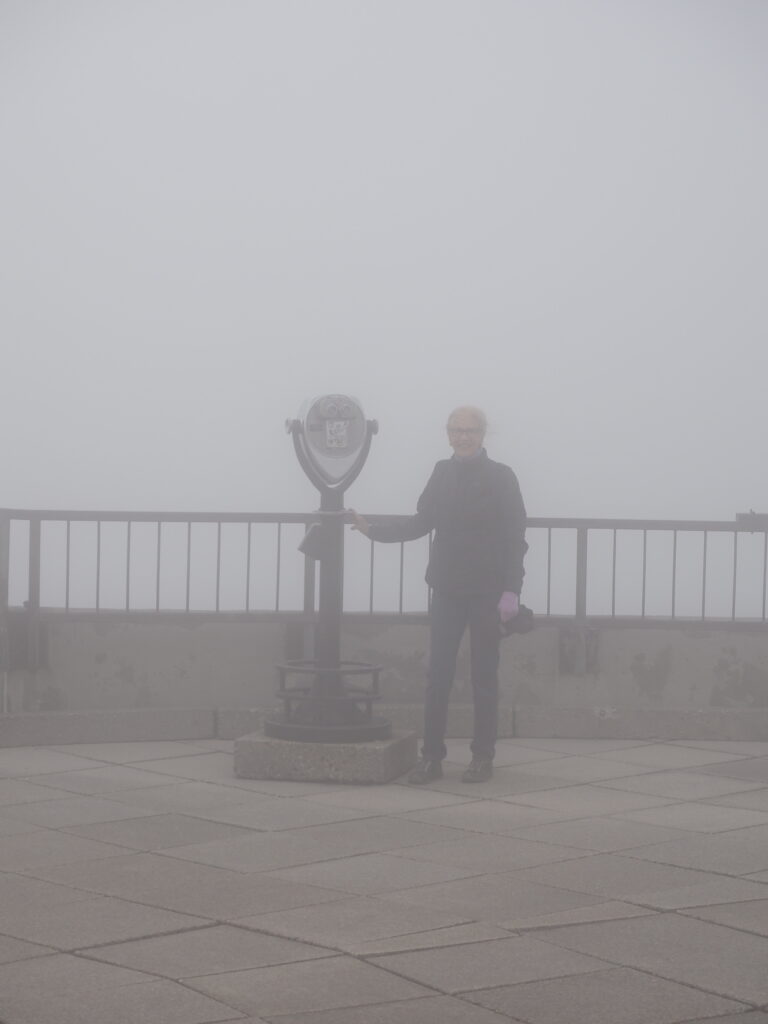
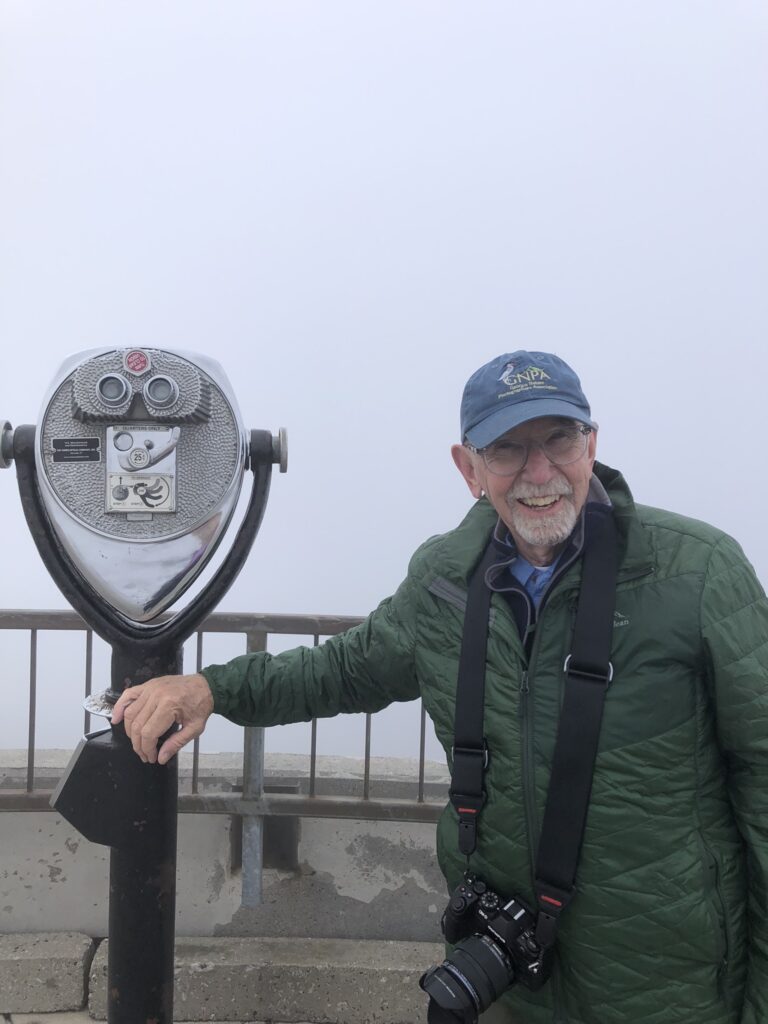
After a couple days, we arrived at Acadia National Park. We had been tracking the weather on coastal Maine for weeks, and it had been what one would expect at coastal Maine: cold, rainy, and generally dismal. Except that when we got there, it remained sunny and warm for the entire week. I’m sure that’s a blessing bestowed upon us as a result of my conspicuous clean living. Actually, maybe that’s not it.
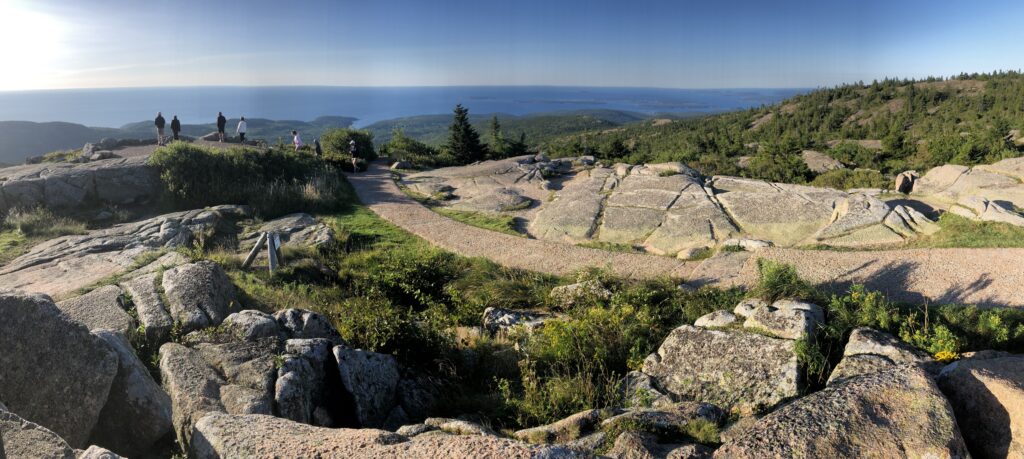
Traveling around the country, we’ve gotten used to dramatic vistas, but Maine presented us with a different kind of beauty.
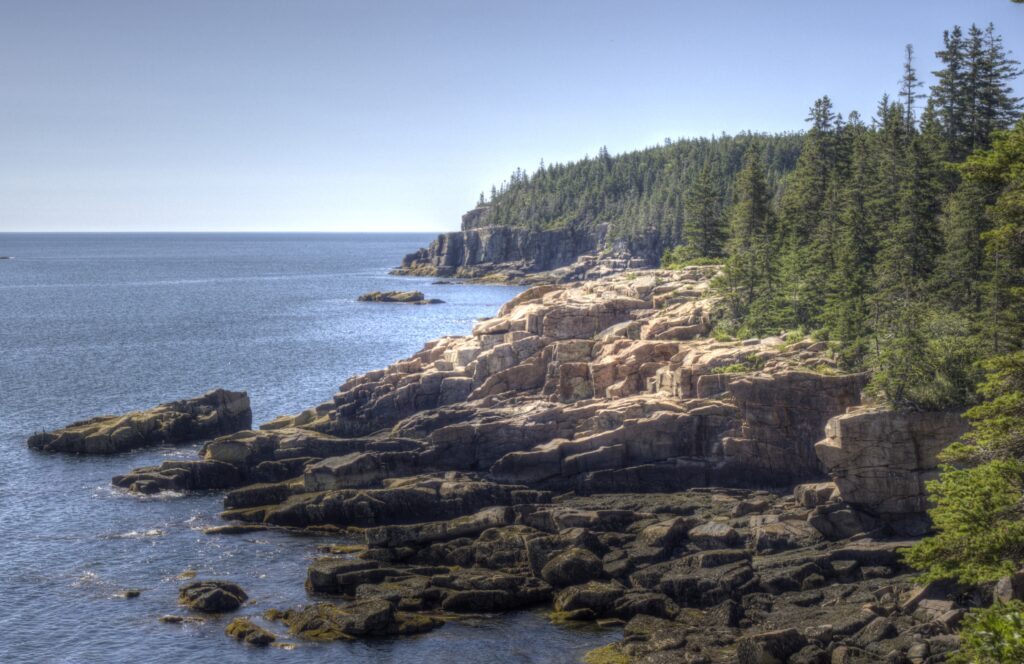
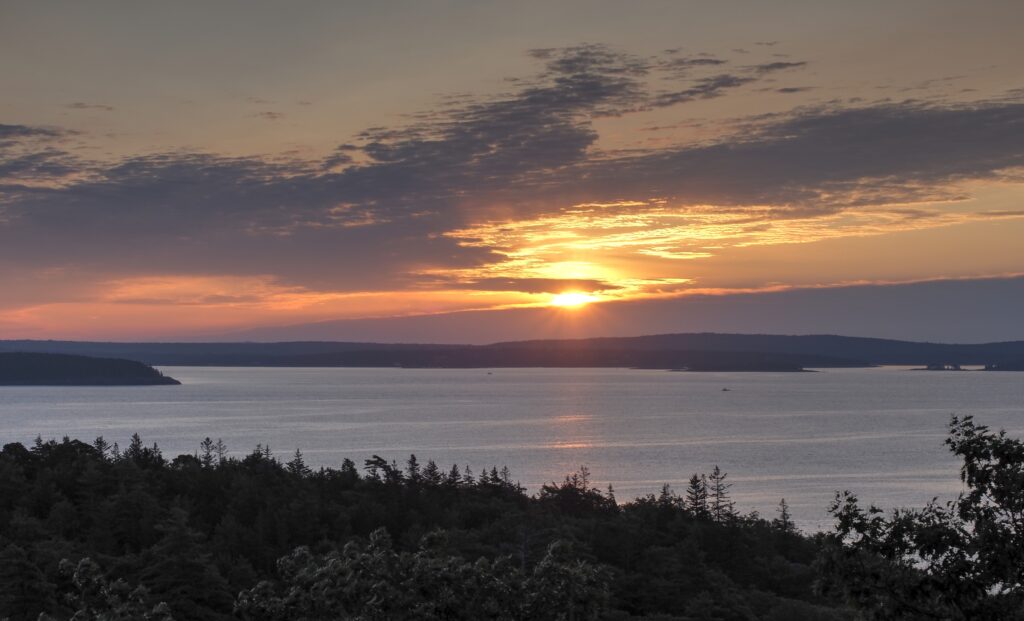
We spent days hiking and touring around and never grew tired of the scenery. Acadia gets more than 4 million visitors per year, making it one of the busiest national parks in the U.S. But, as usual, nearly all of those people never go more than a couple hundred yards from the nearest paved surface, so hiking along the coast soon leaves one pretty much alone.
And one highlight of the trip was the culinary indulgence of having an excess of lobster at least once, and sometimes twice, per day.
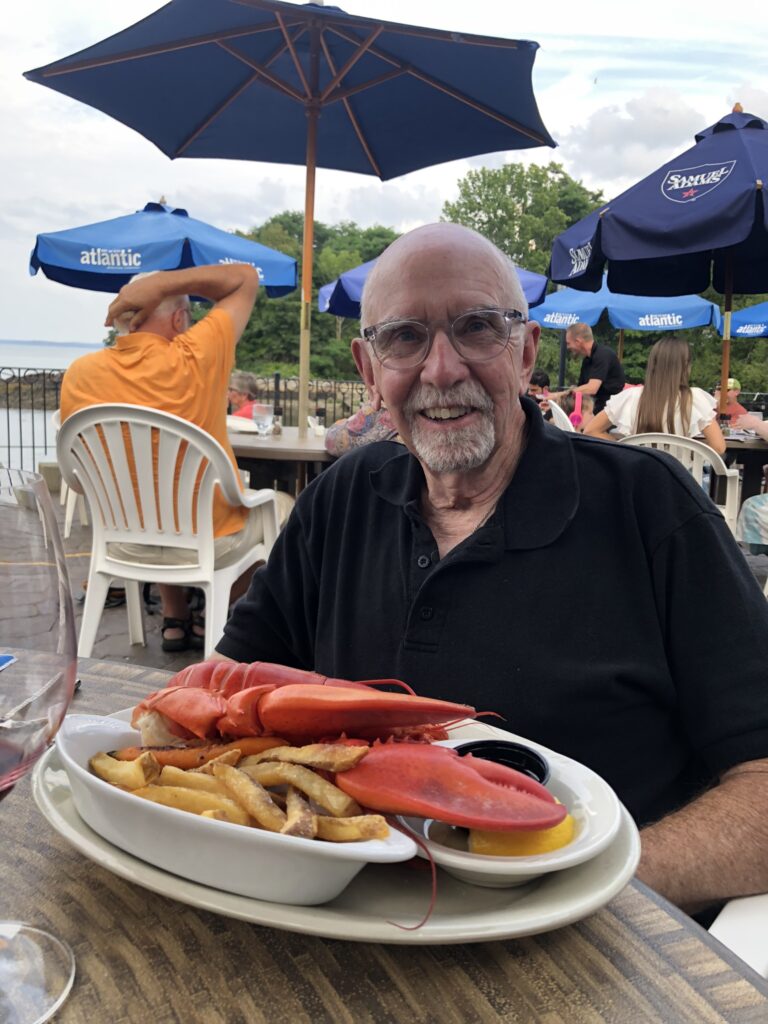
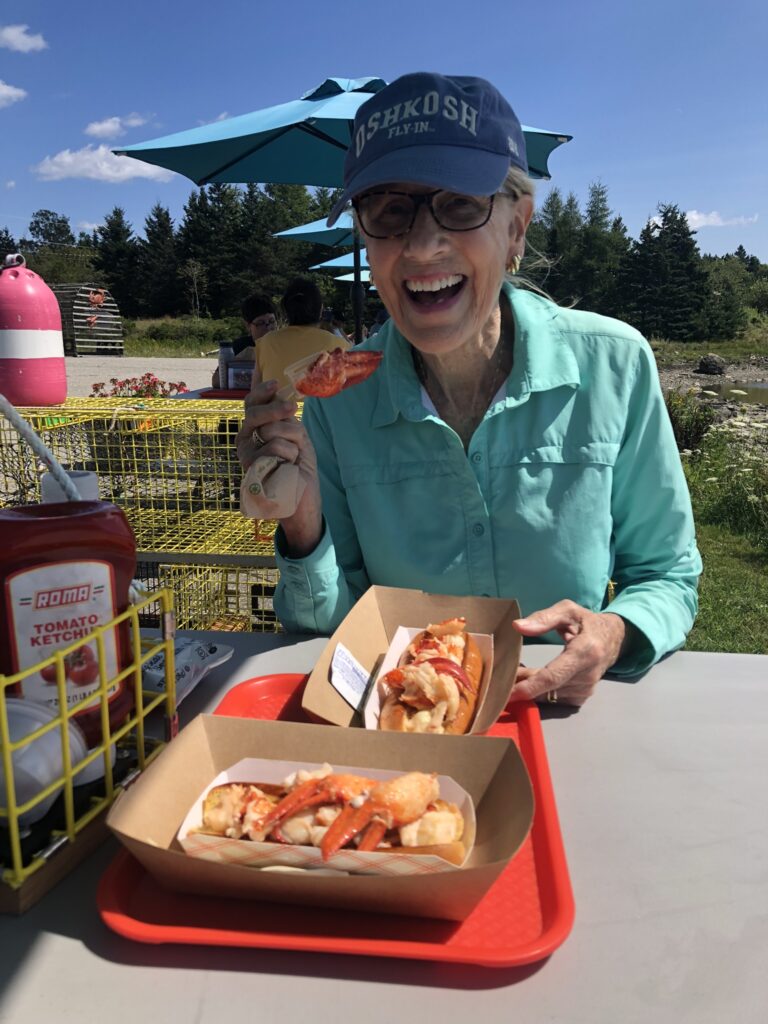
Since we were eating the little critters, we decided to take a tour on an actual lobster boat, guided by a guy whose family has been lobstermen in Maine for five generations.
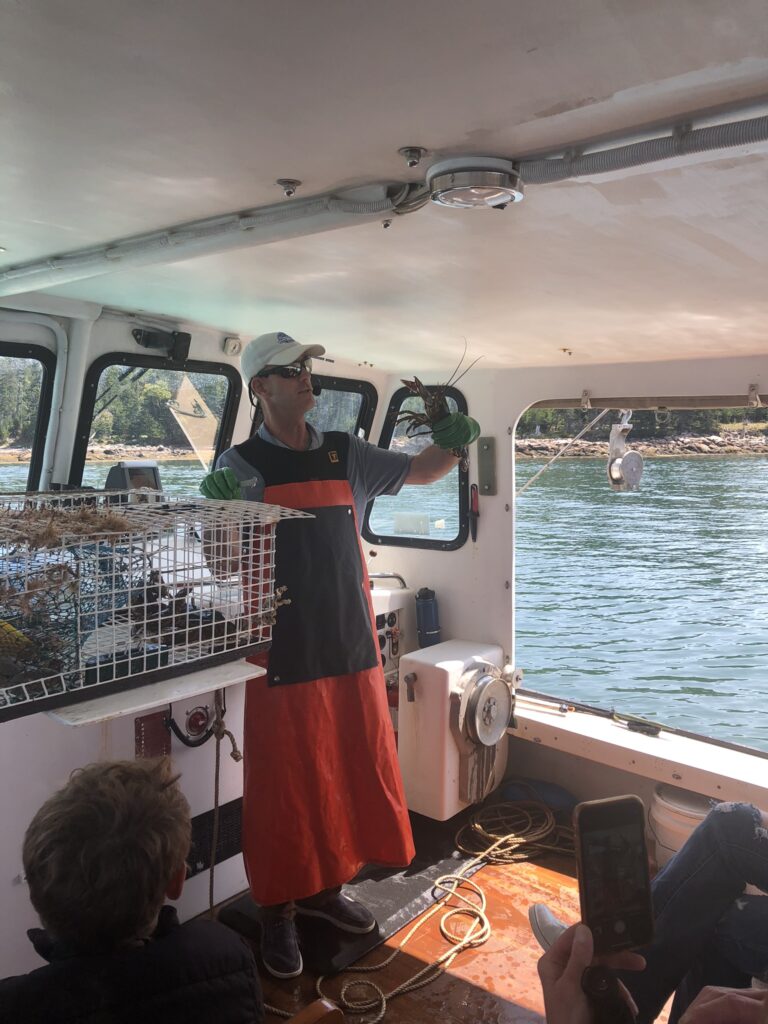
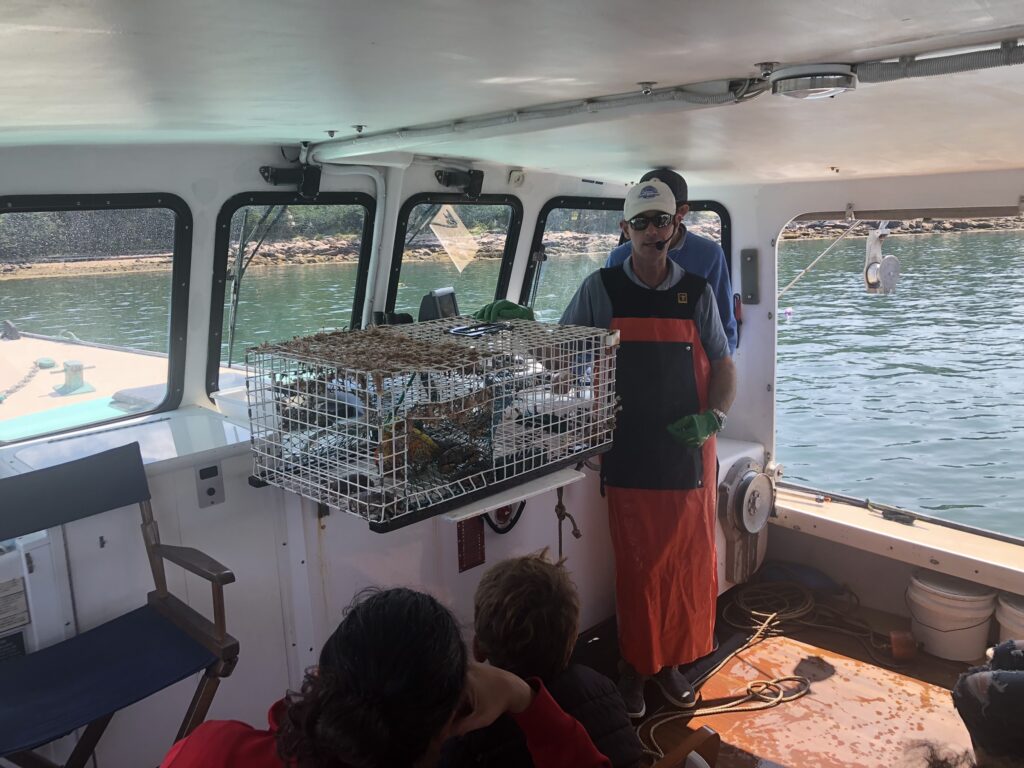
[Digression /on] There’s a theory in environmental philosophy known as the “tragedy of the commons.” The idea is that where there’s a common resource, each user has no incentive to preserve the resource for the benefit of others, which leads to each person over-consuming his “share,” which leads to depletion of the resource, and so on. When the theory was developed by Garrett Hardin back in the 1970s, many economists noted that the theory makes sense in a simplistic kind of way, but for its validity it requires that the users fail to appreciate the problem and cooperate to maintain the resource. So, the question was, which is true in real life? Cooperation or depletion?
As it turns out, the Maine lobster fishery offers at least one answer. Starting all the way back in the early 20th century, Maine lobstermen voluntarily began to cooperate to preserve and enhance the lobster fishery. Each lobsterman agreed to voluntarily limit his take, and they agreed on certain practices to manage the lobster population. For example, they instituted strict size limits on harvestable lobsters, returning lobster that were either too small or too big. If a female egg-bearing lobster is caught, the lobsterman clips a notch in the tail of the lobster, indicating that this lobster cannot be harvested and, if caught again, must be returned to replenish the population. And so on. Eventually the practices were codified and expanded, but the program remains largely self-regulated.
In fact, in 2009 the Nobel Prize in economics was awarded to Elinor Ostrom, the first woman to win the Nobel Prize in economics, for her study of private cooperation of common resources, using the Maine lobster fishery as an example. Her conclusion:
[Ostrom] challenged the conventional wisdom that common property is poorly managed and should be either regulated by central authorities or privatized. Based on numerous studies of user-managed fish stocks, pastures, woods, lakes, and groundwater basins, Ostrom concludes that the outcomes are, more often than not, better than predicted by standard theories.
And the result of such self-regulated, voluntary cooperation in Maine? Eighty-five percent of all the lobster eaten in the U.S. come from Maine. And annual lobster harvests, that were roughly 20 million pounds per year in the 1980s are now 95 million pounds per year! Wow. [digression /off]
Anyway, Maine was a great stop, we (finally) crossed off an important gap in our RV-travel bucket list, and now it’s off to upstate New York to see son #2 and his family.
